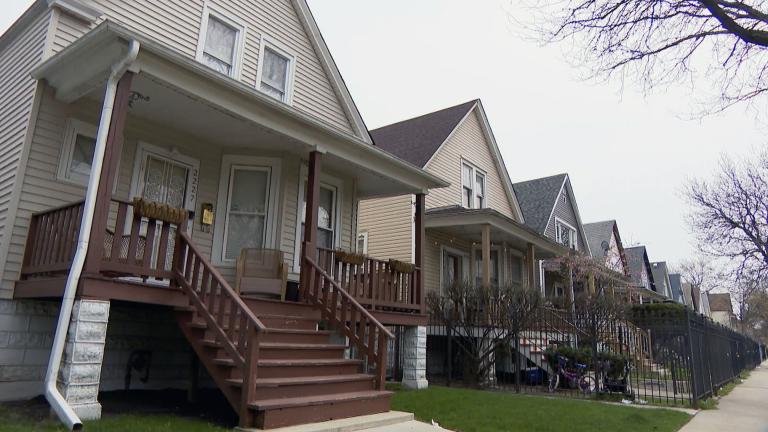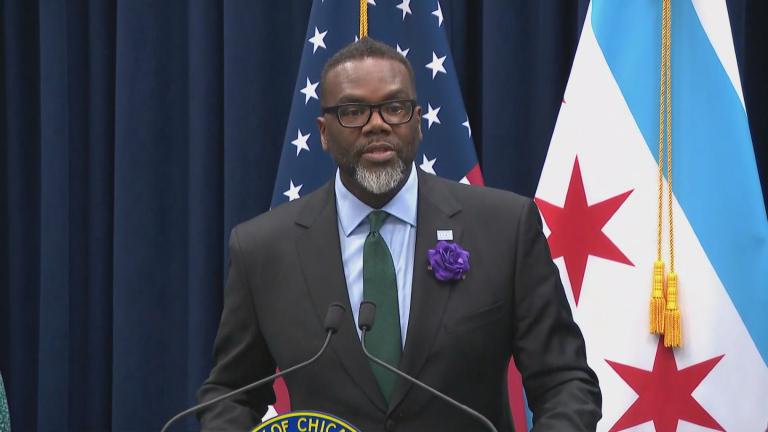Video: Mayor Lori Lightfoot, Chicago Budget Director Susie Park and Chief Financial Officer Jennie Huang Bennett discuss the proposed 2021 budget.
Mayor Lori Lightfoot’s plan to bridge the city’s massive budget gap relies on a tactic used by former Mayors Rahm Emanuel and Richard M. Daley, and will force the next generation of Chicagoans to pay off tens of millions of dollars in debt, the mayor’s chief financial adviser acknowledged Thursday.
Chief Financial Officer Jennie Huang Bennett acknowledged that the plan to borrow an additional $1.7 billion to refinance existing city debt to save $450 million in 2020 and $501 million in 2021 returns the city to the era of scoop and toss, a budget-stretching tactic reviled by fiscal watchdogs as a costly gimmick.
“There are points in time when scoop and toss is appropriate” and that is now the case since Chicago is facing a $1.2 billion budget gap, Huang Bennett said.
Lightfoot’s plan is a balanced approach, based on the fact that it would be impossible to reduce spending or increase revenue enough to cover the budget gaps in 2020 and 2021, Huang Bennett said.
“If we tried to do that … we would decimate portions of Chicago’s economy,” Huang Bennett said. “We felt like this was a balanced approach.”
The mayor’s approach is designed to “preserve” Chicago’s economy until the pandemic ends, and the economy recovers. That could take two to three years, depending on when a vaccine becomes widely available, Huang Bennett said.
Ald. Anthony Beale (9th Ward) called the mayor’s plan “scoop and toss on steroids” during an interview Wednesday on WTTW’s Chicago Tonight.
“This is the largest scoop and toss in Chicago’s history,” Beale said.
Finance Committee Chair Ald. Scott Waguespack (32nd Ward) — a frequent critic of scoop and toss under Emanuel, but an ally of Lightfoot — said the move makes sense because the city may be able to take advantage of lower interest rates while working to recover from the pandemic and to make structural changes.
With great fanfare, Emanuel ended the practice in 2017 and said that would put the city on more solid financial ground.
Three years later, the economic catastrophe caused by the pandemic, rising pension payments and the lack of additional aid from the federal government left the city no other option but to borrow money to pay off old bonds, freeing up funds the city needs to pay for essential services, Huang Bennett said.
That is similar to an individual or family taking out a new mortgage on a house to pay off the old mortgage, but extending the length of time that the debt needs to be paid off by — allowing interest costs to compound.
In 2021, the city will pay its four pension funds $1.8 billion, approximately $91 million more than in 2020 from its general operating fund.
In her budget speech, Lightfoot called for state lawmakers to make structural reforms to Chicago’s pensions, an unlikely prospect in an election year when the state is facing its own fiscal Armageddon.
Under Emanuel, the city used funds borrowed through a scoop-and-toss approach to pay operating costs, including legal judgments against the city. That added millions of dollars in interest costs to the city’s expenses — much like an individual who uses a high-interest credit card to pay for groceries but only makes the minimum monthly payment, allowing debt to accumulate.
Huang Bennett said the restructured debt, if the plan is approved by the City Council, would be paid off over 30 years — increasing the cost of the city’s debt to the next generation of Chicagoans.
The bulk of the borrowing will be delayed until the spring, in order to leave time for Congress to act after the election or the inauguration of a new president, Huang Bennett said.
The city used a similar technique a year ago to balance the city’s 2020 budget plan by refinancing $1.2 billion in debt. However, that refinancing did not include a plan to extend the time to retire that debt — prompting Lightfoot and Huang Bennett to dispute criticism that it represented a return to the era of scoop and toss.
That move proved more successful than city officials hoped, and $100 million from that refinancing will be used to fill part of the $799 million deficit created by the pandemic in 2020. The rest of that 2020 gap will be filled with $350 million in federal relief funds approved in March as well as $350 million from the new debt restructuring plan, which aldermen will be asked to approve in November.
Huang Bennett said the debt restructuring plan proposed by Lightfoot was a better option than taking more than the $30 million proposed by the mayor from the city’s reserve accounts, which would alarm Wall Street ratings agencies and hurt the city’s ability to get low interest rates on new borrowing.
In addition, those funds could be used quickly to respond to another wave of the pandemic, which could cost the city another $442 million in a worst-case scenario, officials said.
Contact Heather Cherone: @HeatherCherone | (773) 569-1863 | [email protected]






